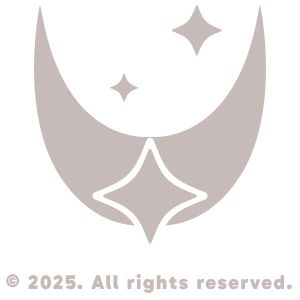Lessons I Learned So Far...


1.- The "what if"..the ruminating question, can be used in both ways. It can either help redirect your awareness into the questions that need to be asked, or it can pull you down into roaming, mind-wandering thoughts. What if you chose you?
2.- There’s a divine, connected essence in all of us a calm, grounded, wiser version of ourselves who is aligned with the universe. One who knows the way. It can only find you when you start paying attention. It’s not always gentle. It can be sarcastic like mine. It will not sugarcoat things, and that’s scary. But it will help you understand yourself better. It helps change the narrative from “I can’t because it’s too scary,” to asking the right questions:
Why is it scary? Why do I feel like fear is an impossible thing to move through? Why am I not choosing good things for myself? Why am I not being honest with myself? Why am I making the decisions I’m making?
And finally, to rediscover questions like: What do I need to understand about myself to stop being scared? Where does this discomfort come from? Since when have I felt the need to keep this behavior alive? Are these choices made out of fear conscious or instinctive? Am I truly safe with my own choices?
Asking yourself the right questions is not only scary.. it’s terrifying. But here’s the relief: once you start choosing and connecting with your divine essence, it will give you comfort.
3.- Accountability is not about taking all the blame, or giving all the blame to the one who hurt you. It’s about understanding the choices, situations, and feelings that kept you in unhealthy patterns. Comfort and courage in understanding can lead to certainty in action.
4.- Naming your wounds is incredibly powerful. It can lead to aha moments, and allow you to create enough space to contain yourself in a more conscious and secure way. It can give you the courage you need — not only to face the storms that may come, but to do so with a certainty that leads to success.
5.- Healing is a never-ending process. It doesn’t need to be perfect, it just needs to be. Like the greater things in nature, it keeps you growing like trees. Steady like mountains. Evolving like seasons. It keeps you going.
6.- The pain doesn’t go away. It takes time, and you need to be patient. Numbing is not healing, and it usually catches up with you. It takes courage and strength to face your pain and sustain yourself through emotions. I’m still not sure how to fully do this myself.
7.- Support systems are important. They are not always and only family… in my case, they weren’t, and that has nothing to do with whether they love you or not. Trust in the relationships you have built. There are solid people in your life who will support you and sustain you. Let yourself be helped and ask for that help. It can be hard and weird if you are not used to it, but it is necessary and their love will remind you how the love you give always comes back to you.
8.- There’s a difference between consuming healing and actually embodying it in your process. We are living in a moment where, honestly, we are so disconnected and have forgotten so much about connecting to ourselves and others that we have a lot of coaches, healers, and people on social media writing books and making podcasts about what should be done or not. Don’t listen to all of them. Start with trying to understand yourself and move from there. Once you let your inner self communicate, it will show you the way not in a gentle way, but in the way you need. Reflect on the information you take and turn it into learning. It will hurt.. it has to. That’s how you will know it’s working. Everything else is just consuming.
9.- Freedom is that it isn’t running, blocking people out, or collecting “options” the way social media likes to glorify. Freedom and independence coexist without fear. Real freedom is choosing. Choosing to commit, choosing to stand in love, choosing to grow even when it’s uncomfortable. Freedom isn’t in being with as many people as possible or pretending you don’t need anyone; it’s in saying, “This is who I want, this is what I stand for,” and being brave enough to live it.
10.- Letting go is not something that just happens. It is a daily process when you choose small acts of love to remind yourself you are still here. It is hard and takes up so much space in your life, and there is no justice or clear reward in loving deeply, not when things end hard. But being kind matters, especially when you are broken inside. There are so many things people say about self-love, and it is not magic. Not being able to let go immediately doesn’t mean you don’t love or value yourself. Real love doesn’t go away. It stays, lingers, and reminds you of your loss, because that loss is real, it is meaningful, and it shapes your life into something different. Forgiveness can be hurtful and full of rage. It is not always clean and magical, it is full of layers of wounds and broken promises. And it is so much more complex than just forgetting. It is about acceptance and embracing the pain you are in while it pierces your heart. Only then can you really understand and see what you are actually forgiving.
11.- Stepping into and accepting the unknown is scary. For some, it can feel like facing fear itself. We live in the illusion of thinking we possess all the knowledge of our paths, our lives, and our future… when in truth, we don’t. We die every day, and yet we tend to love the safety of what we’ve had and defend it fiercely. How could we not? If we pour all our love and effort into building the present we live in, of course we want to stay and enjoy that present, but we tend to do it only when it feels good and safe. The truth is we are always changing, always moving forward, always leaving something behind. We just don’t realize it unless that change happens abruptly and leaves us with nowhere to land. Otherwise, we resist change, because change is filled with unknown situations, and no one in their right judgment would choose it.
Accepting and choosing change is brave. It is facing fear in the face and being okay with whatever might find us on the other side. I have no advice for it yet… it hasn’t been easy for me. But I believe it will bring me closer to making peace with all the challenges that come with growing.
12.- There are two types of hope. The first one is the hope we were taught to have..the hope that things will finally change into what we wish with all our hearts. We wish it so hard because we believe that if only this happened, all our pain would go away. That hope is a lie, and it’s dangerous. It keeps us hanging on to magical outcomes and movie-like resolutions that will never come. That kind of hope comes from attachment.. from the wish to twist the outcome into a scenario where we finally get justice and the pain we endured is clearly worth it. Beware of that hope… and do your best to lose it fast.
Real hope is different. It’s not an instantaneous event that takes your pain away, as if suddenly everything will be fine. Real hope is slow, and it’s steady. It’s the certainty of believing everything will work out in the end. It’s the knowledge that somewhere in the future there’s a version of you who is no longer suffering, who has received the reward for being courageous enough to face yourself with honesty and understanding. Real hope is that steady voice in your soul that says: this will not last forever. You may not know how things will work out, what the outcome will look like, or how long it will take — but you can trust the power of real hope as a constant way of moving forward. Because life always, always changes.
S...


